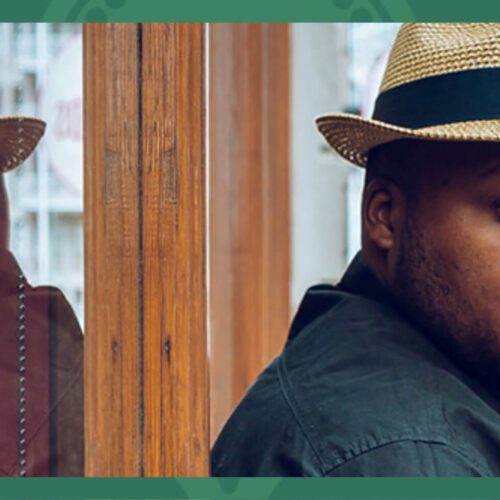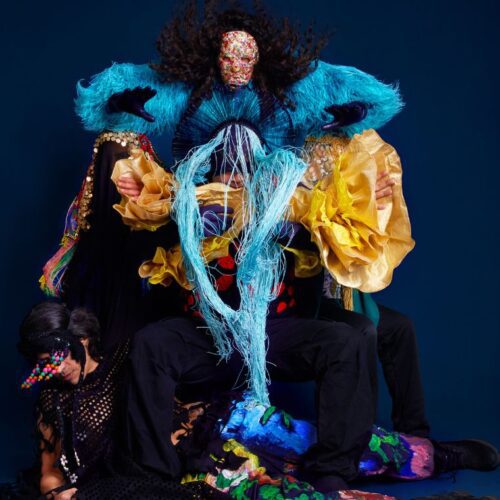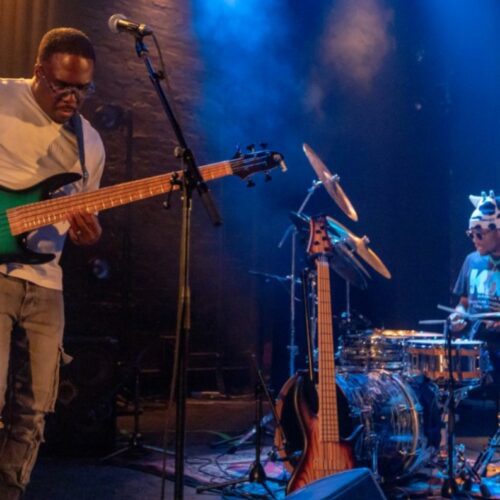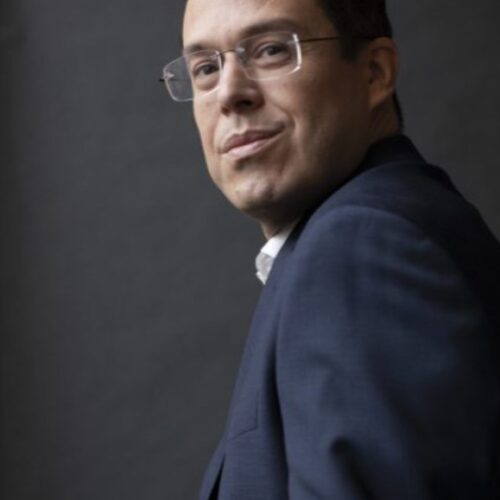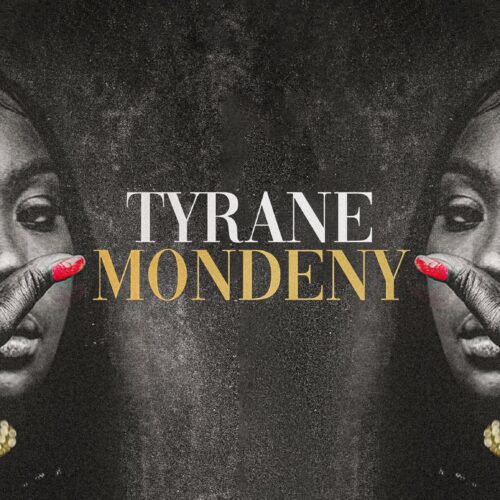Additional Information
Lucienne Renaudin Vary is the eloquent embodiment of the virtuoso musician of our time.
Discerning on stage despite the extreme concentration demanded by her repertoire, open to different musical styles, the young French trumpeter proves herself a model interpreter of the classical repertoire but also a luminous improviser. The classical side of her career seems to prevail in our perceptions… until further notice, as this twenty-something also excels in modern jazz.
This Thursday, November 2, she performs at the Maison symphonique alongside organist Raúl Prieto Ramírez, titular of the great organs of the city of San Diego. Together, they will perform works by Giovanni Buonaventura Viviani, Maurice Ravel, Frederic Mompou, Franz Liszt, Sergei Rachmaninov, Alessandro Marcello, Astor Piazzolla, Modeste Moussorgski and George Gershwin. A program that speaks volumes about our interviewee’s openness and eclecticism.
PAN M 360 : We know that you’re a young trumpeter who’s very much in the spotlight on the European scene. We also know that you’ve already been to Montreal a few times, since your professional debut in 2018.
Lucienne Renaudin Vary: Exactly. And I’m back for a third time with this duo concert with organ.
PAN M 360: In classical music, the trumpet is mostly associated with the Baroque repertoire, but you obviously draw from far beyond this period!
Lucienne Renaudin Vary: Yes. I’ve done Baroque, I even made a Baroque album when I was 13, and I’ve done a lot since then. I continue to do so, and it’s true that we don’t have a huge repertoire for the trumpet. We have two great classical concertos, Hummel and Haydn – which I played in Montreal. I also like to steal repertoire from other instruments and transcribe it, because I was a bit frustrated at not having much repertoire for my own. So I do a lot of transcriptions, but not everything fits with the trumpet. You still have to make a selection.
PAN M 360: Who makes the transcriptions? How do you go about it?
Lucienne Renaudin Vary: It depends on the project. As far as jazz is concerned, when I did my album on the United States and France, I called on Bill Elliott, an American arranger who also works with Barbara Hannigan – who is truly remarkable. Jérôme Ducros did some great arrangements for me too, and I’ll be working with others on future projects. I like to change because I love working with different people because everyone has their own style.
PAN M 360: As you say, not all transcriptions are feasible, and transposing the trumpet to pieces composed for other instruments or the human voice is no guarantee of success.
Lucienne Renaudin Vary: Yes, in general, the repertoire for the voice works quite well, because the trumpet is similar to the voice. Afterwards, I really wanted to transcribe pieces for violin, but in the end, I find that it doesn’t work at all on the trumpet. You don’t have the bow strokes, you don’t have the bows that bite the strings, you don’t have that with the trumpet. What works on the trumpet is melody, the more lyrical pieces.
PAN M 360: When you play Gershwin, for example, it works well.
Lucienne Renaudin Vary: Yes, because in Gershwin, there’s this jazz side that works really well with the trumpet.
PAN M 360: Let’s talk about classical trumpet and jazz trumpet. Since the early days of Wynton Marsalis, i.e. some 40 years ago, classical and jazz trumpets have become increasingly complementary. We imagine you’re very aware of this trend, which is becoming increasingly important these days: more and more classical trumpeters are practicing both written and improvised music.
Lucienne Renaudin Vary : That’s true, and it’s not great to insist on putting artists in boxes, wishing they belonged to a precise style. For example, I made an album of pieces by Astor Piazzolla, whose style is unspeakable. Obviously, it’s tango, but it’s also classical, improvisational and jazz-like. Take Leonard Bernstein, too: he can’t be pigeonholed either.
PAN M 360 : Needless to say, you improvise in public or for yourself!
Lucienne Renaudin Vary : Of course, I do classical and jazz, I started both at the same time. Yesterday, for example, I was in a jazz concert, it was improvisation from A to Z. I have a quartet made up of guitarist Hugo Lippi, pianist Vincent Bourgeyx, bassist Thomas Bramerie and drummer Franck Agulhon.
PAN M 360 : Needless to say, you improvise in public or for yourself!
Lucienne Renaudin Vary : Of course, I do classical and jazz, I started both at the same time. Yesterday, for example, I was in a jazz concert, it was improvisation from A to Z. I have a quartet made up of guitarist Hugo Lippi, pianist Vincent Bourgeyx, bassist Thomas Bramerie and drummer Franck Agulhon.
PAN M 360: So, you’ve developed both techniques at the same time – you have both classical and jazz trumpet models.
Lucienne Renaudin Vary: Yes, of course, it’s always been part of my life, I’ve always needed to do both, because it brings me so much. It’s completely different, the demands aren’t the same at all. At the same time, it’s still music and I see it as a global thing. As long as the music’s good, I’ll take it, whatever the style.
PAN M 360: However, the first perception people have of you on this side of the Atlantic is that you’re a classical trumpeter. Obviously, you’re also a jazzwoman, so we’d like to know more about this side of your career.
Lucienne Renaudin Vary: Yes, I do more classical concerts. I’ve done a few springboards like the Jazz à Marciac festival. I’m trying to develop that more and more, but it’s true that I do more concerts with classical orchestras. But even when I play with classical orchestras, I like to do an improvisation on a theme as an encore.
PAN M 360: Which is a fair return because, anyway, improvisation existed until the XIXᵉ century and now we’re bringing it back.
Lucienne Renaudin Vary: Yes, that’s right. And then anyway, even, I mean Bach improvised, Mozart improvised, Beethoven improvised. And then the composers separated from the performers.
PAN M 360: So, you really see yourself in both. Your personal perception of yourself is that you don’t have a fundamental stylistic box.
Lucienne Renaudin Vary: No, I don’t feel like it at all.
PAN M 360: For many composers and performers, sticking strictly to one type of repertoire may no longer correspond to their idea of advanced music.
Lucienne Renaudin Vary: Of course. To attract people to classical music and jazz too, I think we need to open up to a whole range of styles. I don’t know about you, but in France, several classical festivals are starting to do just that.
PAN M 360: It’s the same here, it’s opening up more and more. The two approaches are gradually coming together. One day, it will become normal to do both, and you’re an excellent example of this growing trend.
Lucienne Renaudin Vary: It’s richer, too, so why deprive yourself?
PAN M 360: Let’s talk about the Montreal duo concert with Raúl Prieto Ramírez, presented by the Orchestre symphonique de Montréal. You’ll be playing works by Giovanni Buonaventura Viviani, Maurice Ravel, Frederic Mompou, Franz Liszt, Sergei Rachmaninov, Alessandro Marcello, Astor Piazzolla, Modeste Moussorgski and George Gershwin.
Lucienne Renaudin Vary: I told you about my eclecticism and my desire to mix many styles. And this is really what we’re going to do. I’ve never played with the organist, but I believe, after having exchanged many suggestions with him, that the program reflects our personalities. So we came up with this program. It’s great because it also means the audience never gets bored, and gets a sort of global view of the music.
We’ll be playing Viviani, Ravel and Rachmaninov, two of whose arias we’ll be playing, as well as a lovely piece by Mompou, which isn’t very well known and isn’t at all made for the organ… and which sounds incredible with the organ. We also have this baroque concerto by Marcello, which I really like. We have Liszt and Moussorgski for solo organ, and we also have Piazzolla and Gershwin. These are pieces that are very close to my heart, and I think the same goes for the organist.
PAN M 360: You conclude with Gerswhin’s The Man I Love, a well-known ballad. Was this an editorial choice?
Lucienne Renaudin Vary: Maybe… and then I can improvise. All in all, I don’t think we should put up any barriers. That’s how I feel about it. And that’s how I feel free.
PAN M 360: Free in an act of communication!
Lucienne Renaudin Vary: The main thing for me is the relationship with the audience. For me, a concert must be a moment of sharing.
PAN M 360: Another interesting thing about you is the way you present yourself on stage. You’re definitely not into austerity! You’ve got that showbiz side, which is great, and you’re not the only one. Many virtuosos of your generation, moreover, are less stuck in classical decorum than previous generations.
Lucienne Renaudin Vary: Yes, but it’s not really calculated in my case, it’s a bit in spite of myself, so I don’t ask myself too many questions about it. It’s natural, it’s who I am. Anyway, you have to move with the times!
PROGRAM :
Giovanni Buonaventura Viviani, Trumpet Sonata No. 1 in C major (7 min)
Ravel, Vocalise-study in the form of a Habanera (3 min)
Frederic Mompou, Damunt de tu només les flors [Above you, only the flowers] (4 min)
Franz Liszt, Valse de Méphisto no 1, S. 514, for solo organ (transc. Ramírez)
Rachmaninov, 6 romances, Op. 4: IV. Georgian Song (4 min.)
Rachmaninov, Fourteen romances, Op. 34: V. Arion (3 min)
Intermission
Alessandro Marcello, Concerto for oboe in D minor (10 min)’ Piazzolla, Ave Maria (Maria)
Piazzolla, Ave Maria (5 min)
Mussorgsky, Pictures at an Exhibition, excerpts, for solo organ (orch. Rimsky-Korsakov, transcr. Ramírez)
Baba Yaga
The Great Gate of Kiev
Gershwin, The Man I Love (4 min)
THIS PROGRAM IS PRESENTED ON THURSDAY, NOVEMBER 2, 7:30 P.M., AT THE MAISON SYMPHONIQUE.




